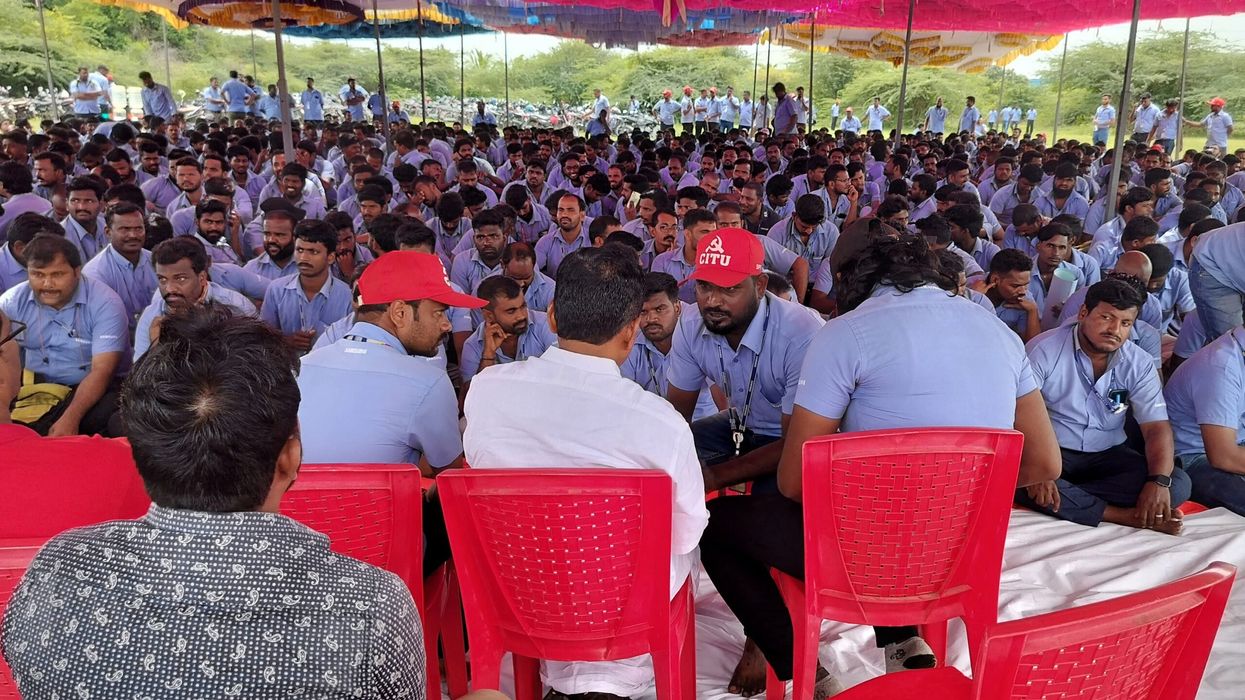WORKERS at Samsung Electronics' plant in southern India will remain on strike until their demands for better wages and improved working conditions are met, union leaders said. The strike has disrupted production at the consumer appliances factory in Sriperumbudur, near Chennai, for three consecutive days.
The plant, which manufactures products like televisions, refrigerators, and washing machines, is a significant contributor to Samsung’s revenue in India, accounting for 20 per cent to 30 per cent of the company’s annual £9.16 billion sales in the country.
Union leader E Muthukumar told Reuters, “The strike will continue until a settlement is reached, with the next round of talks scheduled for Friday evening.” He added that as things stand, the strike is expected to continue until then.
The factory is situated in an industrial area home to other global companies like Foxconn and Dell. A source with direct knowledge of the situation said that on the first day of the strike, 50 per cent of daily production was disrupted, with 30 per cent of production hit on the second day as temporary workers were brought in to maintain operations.
Workers are demanding Samsung acknowledge their union, raise wages, and improve working conditions. Samsung Southwest Asia CEO JB Park and other senior executives have travelled to the factory to address the protests. “They (Samsung) will soon have to talk to us, just like they had to engage with the Korean union,” Muthukumar said.
In July and August, 36,500 members of Samsung Electronics' largest worker union in South Korea went on strike for higher wages and benefits, but production was unaffected.
Samsung, which is India’s largest consumer electronics company, did not respond to requests for comment. A spokesperson for Samsung India stated on Monday that the company is actively engaging with workers to address grievances and is complying with all laws and regulations.
The strike in India comes ahead of the key festive season, a crucial time for consumer purchases. According to employees outside the factory, Samsung has yet to agree to recognise the union, which is backed by the local labour group Centre of Indian Trade Unions (CITU).
Workers in Samsung uniforms and red CITU caps were seen sitting inside a makeshift tent near the factory, which employs about 1,800 people. Meals were arranged by workers and distributed on Wednesday afternoon. Earlier, employees were seen chanting outside the factory: “We will stand together and secure a win.”
There has been no labour unrest at Samsung’s other Indian plant in Uttar Pradesh, which produces smartphones.
(With inputs from Reuters)




